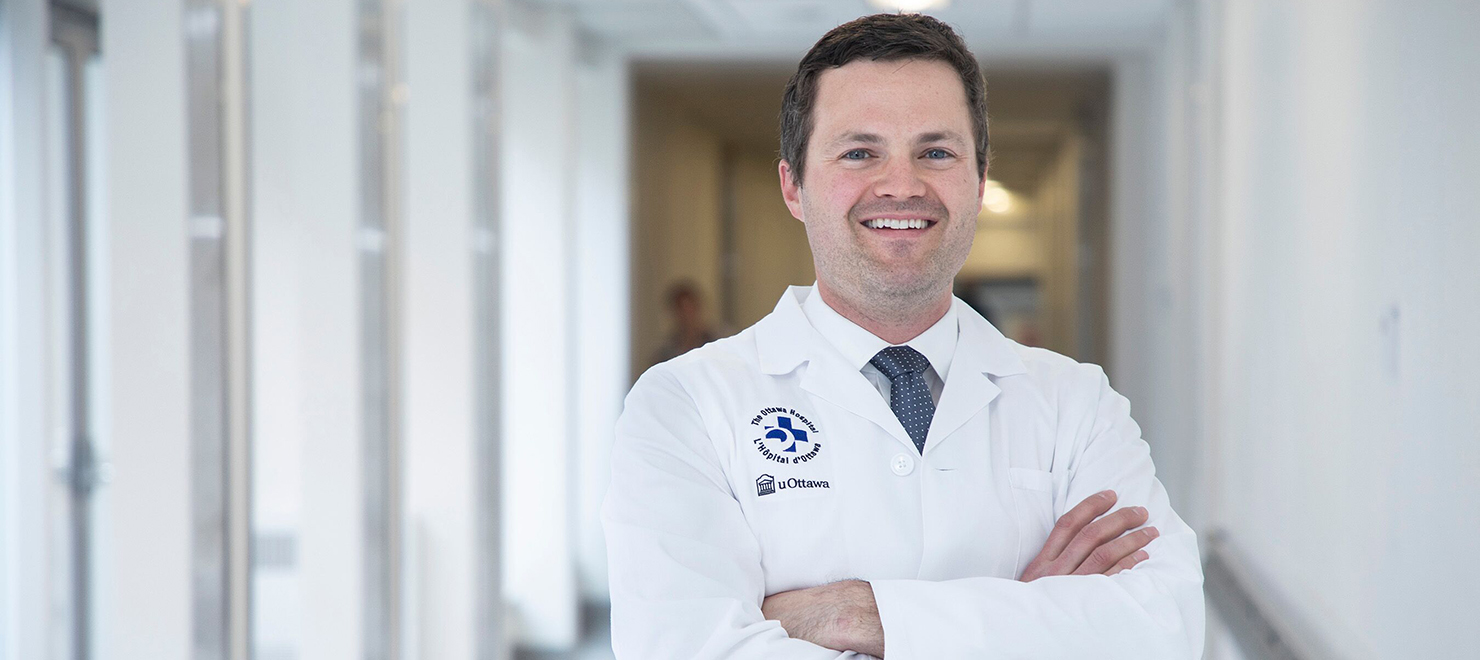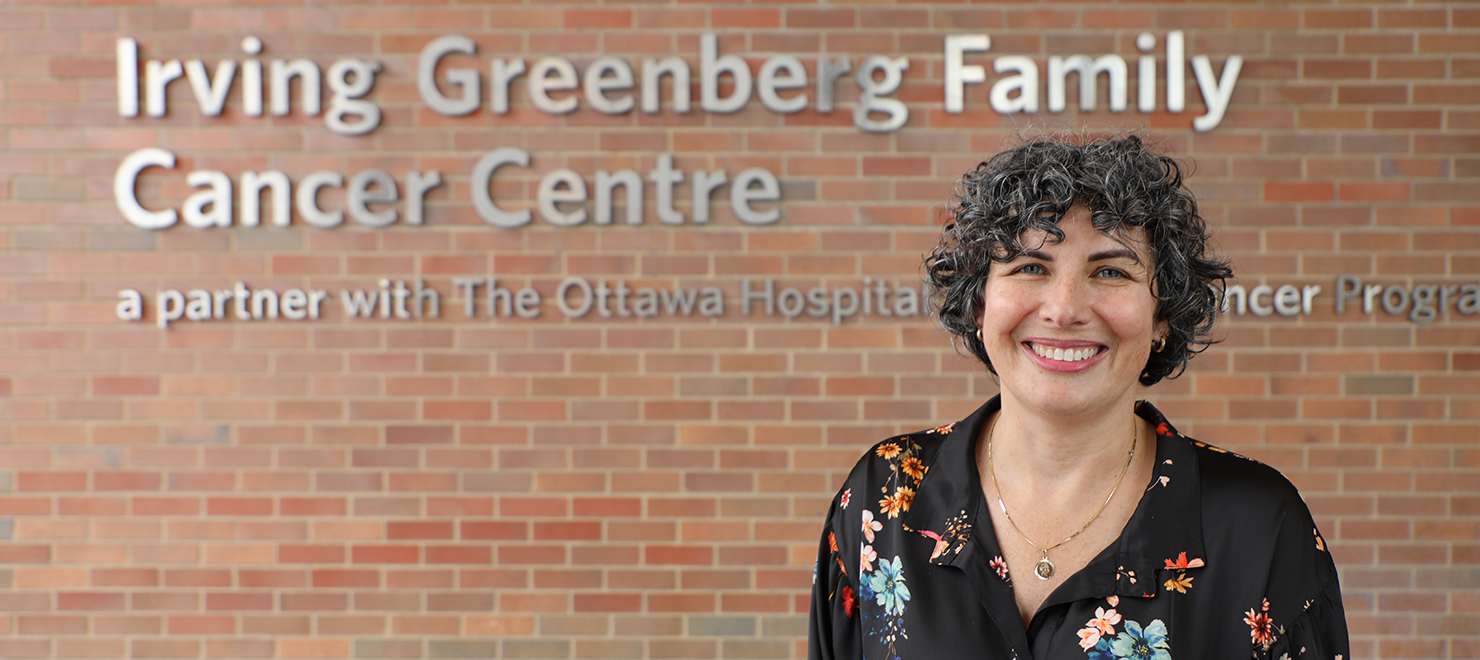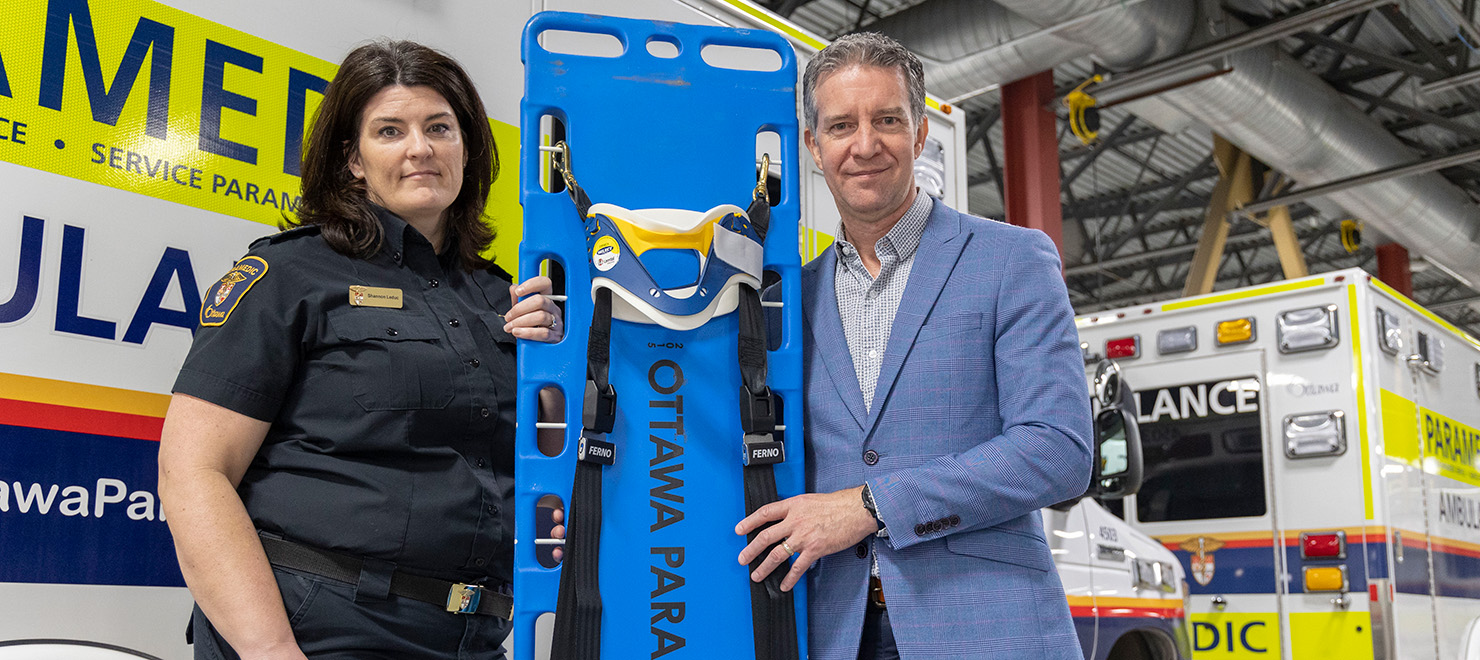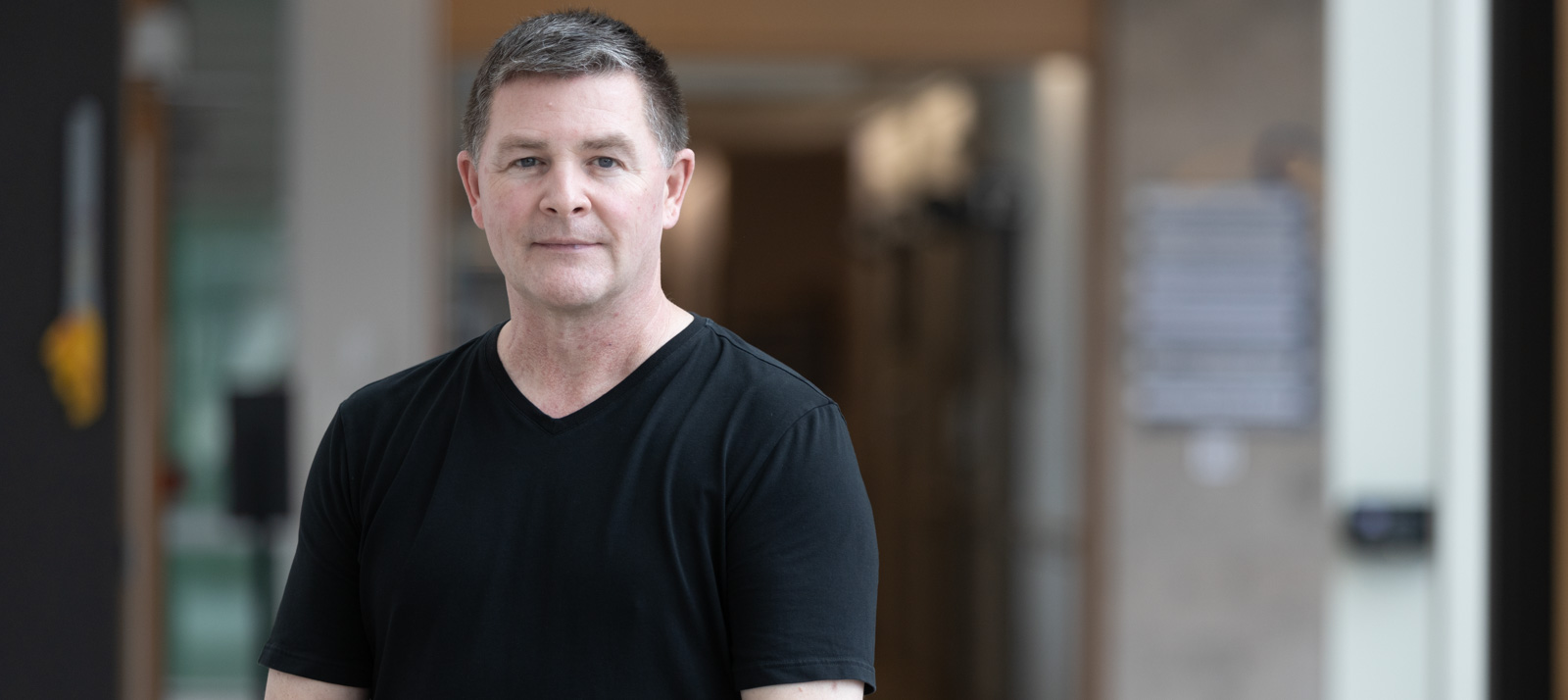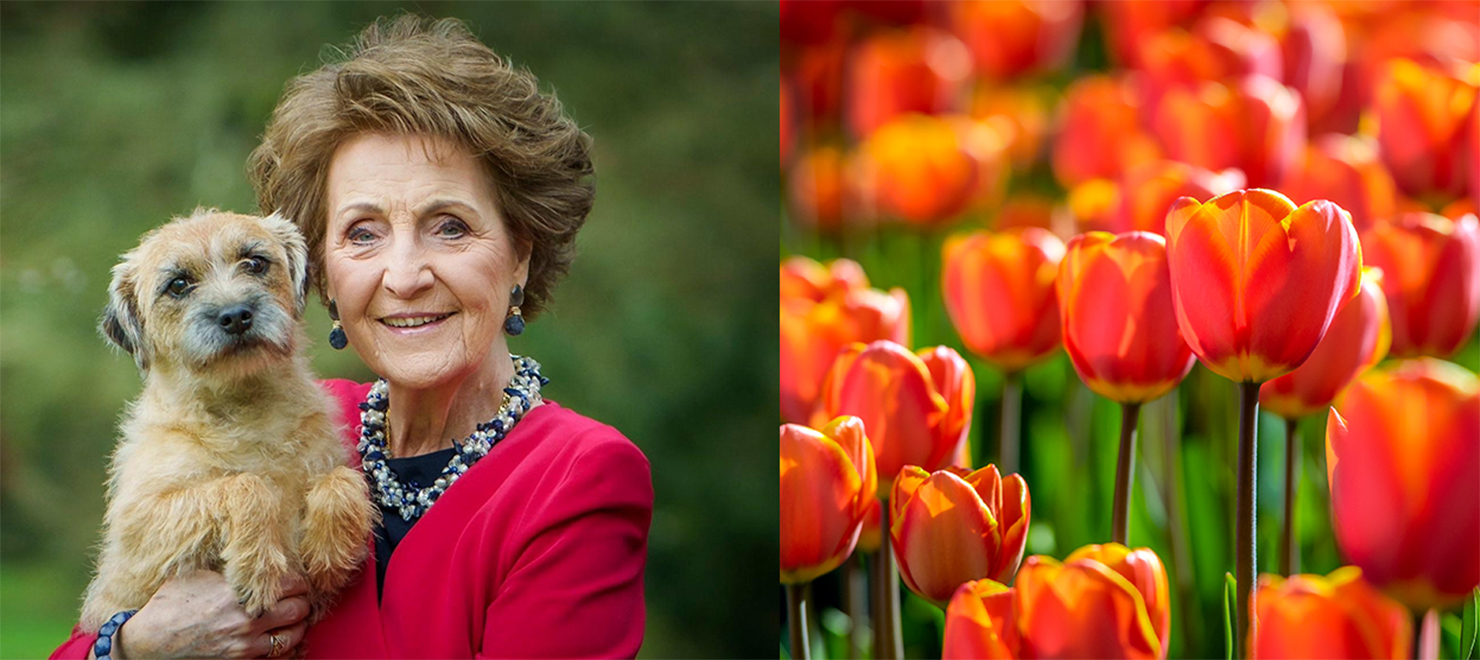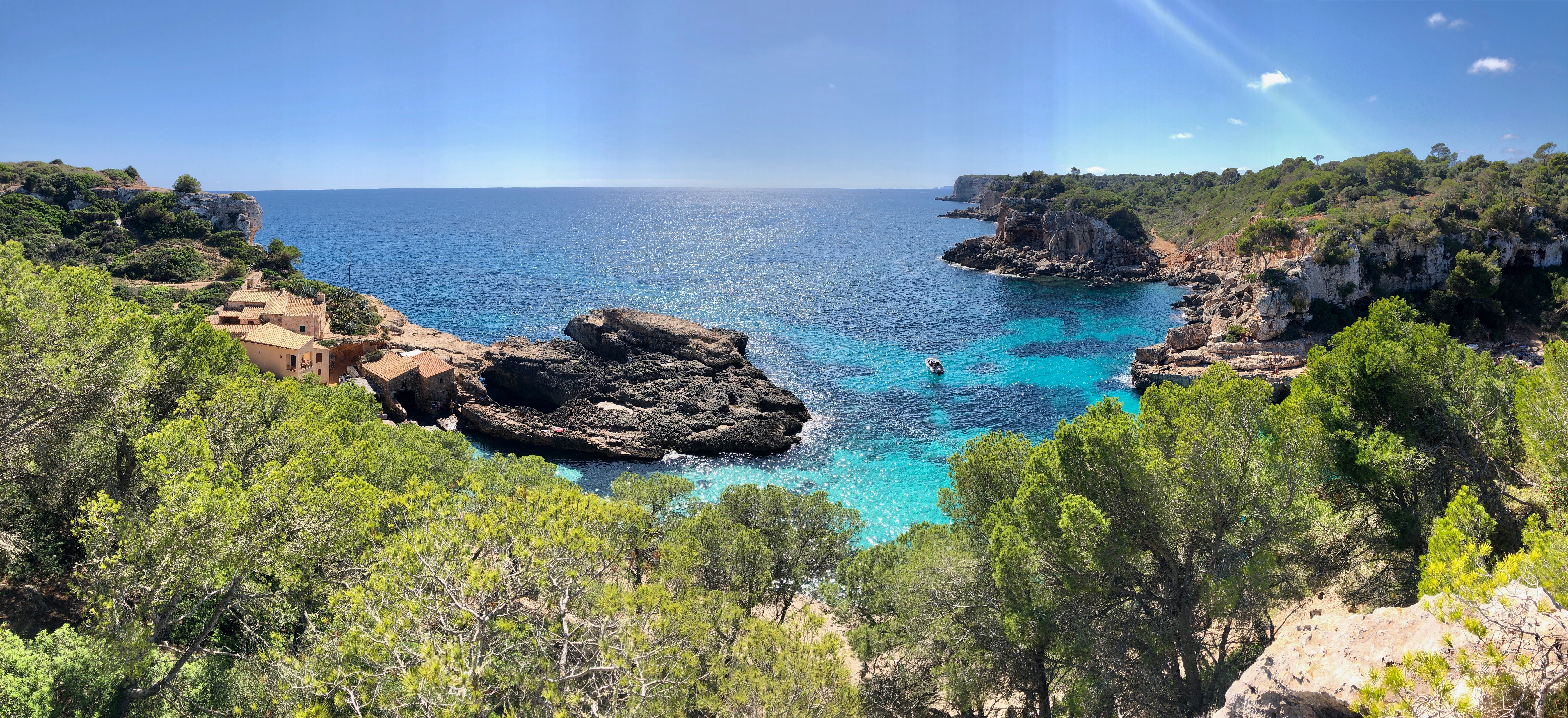
Most people who plan a vacation to Mallorca, Spain expect to relax on sunny beaches and stroll by breathtaking architecture. But for Jim Booth and his wife, Joanne, COVID-19 turned their dream vacation into a fight for their lives and an emergency trip back to Canada to receive world-class care at The Ottawa Hospital.
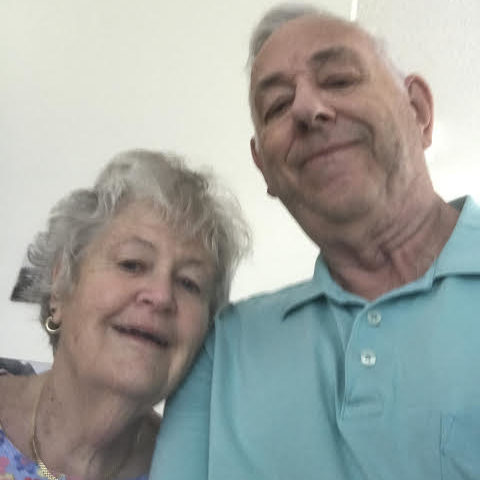
Jim and Joanne travelled to Spain in March 2020. They enjoyed two days of excursions with their tour group before some of the attractions they were booked to see started to shut down. Before long, Jim and Joanne came down with a cough, and they were sent to a local hospital for tests. Jim was cleared, but Joanne tested positive for COVID-19 and was put into isolation.
Alone in his hotel room, Jim was consumed with worry for his wife of 57 years. He returned to the hospital where he was tested again for COVID-19. This time the test came back positive.
Jim’s condition worsened quickly. He fell unconscious.
“My heart had stopped,” Jim explained. “My lungs had filled with fluid. All my organs had shut down. They had to put me on a ventilator to keep me alive.”
As Jim’s condition worsened, Joanne’s improved. After being in a Spanish hospital for more than a month, Jim was stable enough to make the trip home to Canada.
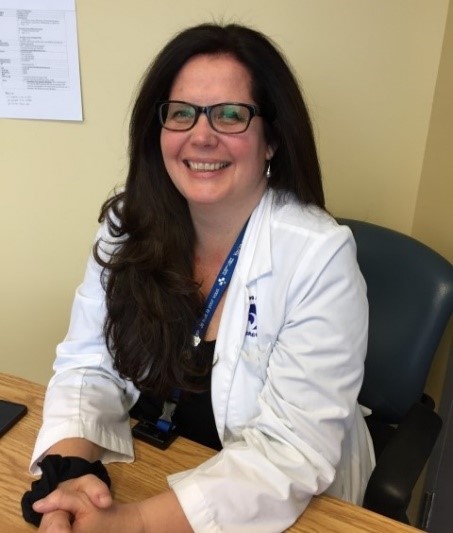
Medical air transport was arranged and Jim and Joanne were flown to Ottawa and taken by ambulance to an isolation bed in the ICU at The Ottawa Hospital on April 19, 2020.
He was very sick,” explained Dr. Carolina Rush, a neurologist at The Ottawa Hospital. “I don’t think anyone expected that he was going to recover. He was older; he had other health conditions—the odds were against him.”
COVID-19 caused inflammation of Jim’s brain, which resulted in seizures. The hospital’s neurology team gave him medication to control the seizures, but his kidneys were failing. He was still very, very ill.
But despite the odds, Jim’s condition slowly improved. It wasn’t until May that Jim started to become more aware of what had happened.
“When I first woke up, as soon as I moved, a nurse would come in and ask if I needed anything,” Jim said. “They gave me ice chips because my mouth was so dry.” The care team also arranged for Jim to have video chats with his family, which includes children, grandchildren and great-grandchildren.
But the extended time in hospital took a toll on his body.
“I was very weak,” he said. “I had lost 40 pounds.”
“I said to myself, ‘I will get up and sit in my wheelchair for every meal.’ And I did,”
With the help of a talented team of doctors, nurses, respiratory therapists, occupational therapists, physical therapists and others, Jim slowly regained some strength.
“I said to myself, ‘I will get up and sit in my wheelchair for every meal.’ And I did,” he recalled.
The physical improvements helped him carry on, but it was the compassion of the staff that really kept him motivated.
“Every morning the people who came in would say ‘hello, how are you?’ They raised my spirits a lot. I can’t say enough about them.”
And when it was safe, Jim continued his recovery at The Ottawa Hospital Rehabilitation Centre.
The staff at the Rehabilitation Centre encouraged him to do a bit more each day. Eventually he was able to do some of his personal care by himself.
All that work paid off. After nearly two months at The Ottawa Hospital, he went home on June 18, 2020.
“When I got home, I needed a lot of help,” he said. “ Joanne was so wonderful. She was constantly by my side I’d like to thank her very much for helping me get to my goals to get better.”
Jim reports still feeling a bit shaky, but is getting stronger and walking up to two kilometers at a time.
“I just want to thank everyone so that everybody knows that I greatly appreciate what they did.”
His recovery has delighted Dr. Rush.
“Every time I see him, first using a wheelchair, and then a walker, and now a cane, he looks like a peach!” she said.
Jim is so grateful to Dr. Rush and everyone who saved his life.
“I just want to thank everyone so that everybody knows that I greatly appreciate what they did.”
One of the ways Jim showed his appreciation was by participating in the LEFT study at The Ottawa Hospital.
The Long-term effect of SARS-CoV-2 infection on physio- and psychological health (LEFT) study followed hospitalized and non-hospitalized COVID-19 patients at three, six, and 12 months to observe any impact of COVID-19 on their overall health, lung function, exercise capacity, and mental health over time. This study was one of the earlier studies on “long-COVID,” and the patients who participated in this study offered invaluable insight when very little was known about the virus’s long-term effects.
When asked why he chose to participate in research at the hospital, he said, “I feel that if I can help anybody, I’m willing to do it.”

Support patient care and research at
The Ottawa Hospital
You might also like…
Do you have a surgery coming up? Here are five “prehab” tips to help you recover faster
You’ve probably heard about rehabilitation, but what about “prehabilitation”? Prehab is all about getting your body and mind in top shape before surgery so you can enjoy a smoother, quicker recovery. Discover five essential prehab strategies from researcher Dr. Daniel McIsaac.
By thinking differently, this research team is improving the lives of people with cancer
Taking a different approach to clinical trials, the REthinking Clinical Trials (REaCT) program aims to answer some of the most important and practical questions that affect both patients with cancer and our health-care system. Find out what sets REaCT apart and makes the program so special to participants like Beth.
Does this backboard look comfortable to you?
Imagine this: You’re flat on your back, strapped tight to a rigid backboard, unable to move at all. Fortunately, this is no longer the reality for most low-risk trauma patients when they’re brought to hospital in our province. Find out how researchers at The Ottawa Hospital teamed up with paramedics across Ontario to make the journey a lot more comfortable.
The place to be: The Ottawa Hospital recognized as one of Canada’s most admired corporate cultures
The Ottawa Hospital (TOH) has been named one of Canada’s most admired corporate cultures. Guided by compassion and commitment to patient care, TOH has developed a workplace culture that inspires confidence and trust in our employees, patients and family members.
Ever have a tough time making a medical decision? These tools can help you
When faced with a medical condition, there may not be one clear path forward — but we have something to help you with that. The Ottawa Hospital is home to the largest collection of decision aids in the world, covering everything from various cancers to depression to allergies.
Watch: Princess Margriet of the Netherlands sent us this lovely video message for the Civic’s 100th anniversary
If you’ve ever wondered why tulips are so important to our city, the answer involves a world war, a royal family and The Ottawa Hospital’s Civic Campus. In this special video message, Her Royal Highness Princess Margriet of the Netherlands shares why the tulip is a special symbol of the endearing friendship between her country and Canada.


 To reset, hold the Ctrl key, then press 0.
To reset, hold the Ctrl key, then press 0.
